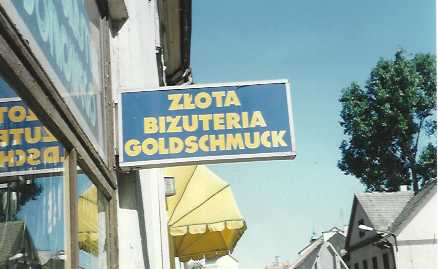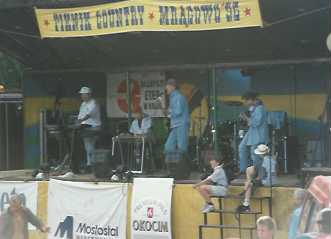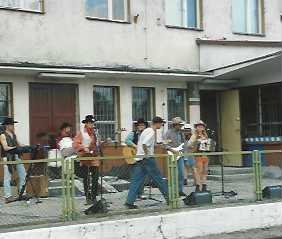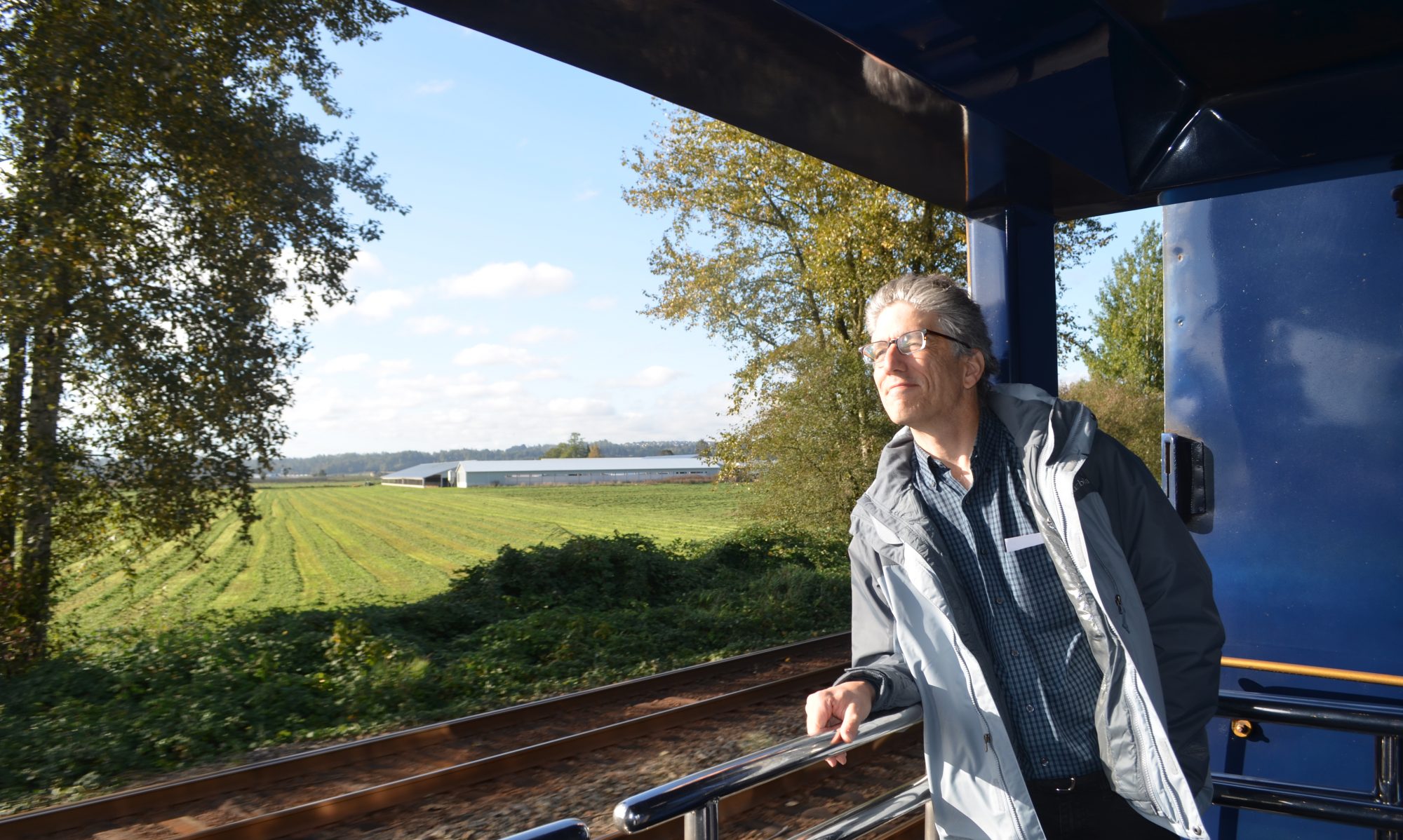Oh Susanna, My Achey-Breaky Heart Loves You Tender…in Polish
“One ton of fan mail,
I get one ton of fan mail….”
—Patrick Swayze parody of the song “Guantanamera” for “Saturday Night Live.”

Have I mentioned I’ve never really liked country music?
Although I spent four years going to school in the Midwest during the farm-foreclosing, Live-Aid-For- Farmer-holding, Willie Nelson-twanging, country music jamboree of the 1980s, I hated hearing about alienated farmers who had just gotten out of jail to discover that their dogs had driven off with the wife in the pickup truck, only to have all three run over by a train — and man were they going to miss their trucks.
So, I’m still puzzled why I wanted to zip up to the Northeastern Mazuria Lakes resort region when I heard there was an annual country music festival there, but I had to go. It must have been my love of kitsch. In my experience, there’s always been another side to country music besides cheating hearts, love gone wrong and time spent in prison. There’s also the purest, most unapologetic kitsch in the world: velvet Elvis paintings, trailer parks and big hair. (“The bigger the hair, the closer to God.”)
I didn’t know what I expected to see when East(ern Europe) met (Country and) West(ern), but I knew I had to experience it. So I delayed visiting Krakow and headed North for a full dose of weirdness, regardless of whether it was good or bad, and got into a neighboring town two days before the start of the “Kountry Piknik.” After all the horror stories I’d heard about a lack of rooms during Tamworth’s festival, I didn’t want to have to sleep outside in the rain.
Although Mragowo (pronounced “Mron go vo”) wasn’t much to look at, Mikolajki (pronounced “Mick ul walk e”) completely surprised me. The little I had read about the Land of the Great Mazurian Lakes in LP described it as a resort area so covered with lakes and rivers that it was popular with kayakers and yachting enthusiasts. That didn’t quite fit the pictures country music painted in my mind: the rust belt, depressed farm towns and trailer parks as well as parts of Mississippi and Arkansas.
LP was right. Although I don’t usually think of villages being on the water, Mikolajki felt more village than small town. There were only two main streets running through the center of the tiny burg, with a few side streets running between them. Even if a stranger got lost downtown, it would still take less than five minutes to WALK back to the two-lane highway between Suwalki and Mrogowo. The town had a butcher, a baker, a few restaurants, a post office, 10 or 15 souvenir shops, a one-block-long temporary market. Most of the businesses were nestled around a town square complete with a fountain, plenty of places to sit, and a two-story restaurant/movie theater/bed and breakfast that occupied most of the block-long strip of businesses between fountain and waterfront.
Lining the backside of downtown for about five blocks, the boat docks were where the action was. The narrow street next to the docks was choked with people and packed with beach houses, a number of smallish beach hotels (all full) and two or three beach bars thrown in for good measure. The docks were filled with pleasure craft with heavy emphasis on pleasure. The crowds were there because the town waterway serves as a link between two major lakes and is the gateway to the Polish inland sea, whatever the hell that is. It was easy to imagine the town going into hibernation once summer ended.
There were houses on the opposite side of the lake, a playground and small lakeside park, but they rapidly gave way to lush farmland with rolling hills, wheat fields, and horse drawn carts filled with wheat. I also noticed similar farms on the bus into town, which made me feel like I was looking out on a midwestern village in the late 1800s. I suppose I shouldn’t have been surprised. I knew Poland was the breadbasket of Europe, but I hadn’t been able to picture it before because I went to school in the Midwest, a land of IGAs, grain silos, farm-to-market routes and business loops where kids would go cruising every Saturday night. For some reason, I found it difficult to believe there was anywhere in Europe like that.
I took a room on the second floor of the bed and breakfast overlooking the town square and immediately went to work. Since I had two days before the festival started and didn’t have to be anywhere, I worked on stories about the Jewish prisoners of Thailand and the American journalist who was being held in a Bangkok prison. I couldn’t have chosen a better place to work. I’ve always wanted to live in an apartment overlooking a town square or a busy downtown avenue so I could see street scenes when I battled the occasional bout of writer’s block.
It was the first chance I had had to write in months. Unfortunately, I kept running into distractions. First, I was tired and needed a nap, then my computer ran out of power. When I tried to plug in my recharger, I learned that b&b rules forbid using plug-in appliances (the prohibition was designed to keep guests from making coffee in the rooms, taking away business from the restaurant). Having management approve my use of the outlet didn’t help because it didn’t seem to be connected to any electricity unless both it and the cord that was plugged into it were jiggled. Doing this kept my computer on until I sat down to write. Once the jiggling stopped so did my computer. After finally managing to find a way to charge the laptop while I went to get my scraggly beard trimmed (only to have the non-English speaking barber shave it to all the way down to a mere suggestion of a beard which could have been mistaken for dirt), I started writing and made lots of progress for about a half hour until an Andean band began a concert in the town square right underneath my window. I valiantly struggled on for 20 minutes, but finally gave up, threw open the window and sat and listened. Guantanamera may not be the only song the group knew, but it was the heart of their repertoire. With riffs and improvisation, it took them three years to finish it.
I finally gave up trying to write and took an afternoon bus into Mrogowo to
get information about the Kountry Piknik.
Mrogowo is as non-descript as Mikolajki is picturesque. It could be just about any small town anywhere in the Midwest where buses and passenger trains still operate near the town hall. There’s even a little stadium and park right next to the center of government. The only difference is the lack of vowels on everything. Grocery stores are spzywjys, or something like that and even the signs that do have vowels don’t make sense.
The sign that tickled me the most said “ZLOTA BIZUTERIA GOLDSCHMUCK.” Now from the zlota I can pretty much figure out that it was likely a money changing business. Goldschmuck baffled me. In Yiddish, a language with Eastern European roots, the phrase schmuck generally means idiot or, if you want to get graphic, penis (although “dick” or “dickhead” are probably more accurate). I’m pretty sure “gold” means gold, but even that doesn’t make any sense because I can’t figure out what the owner was trying to say. Is he a rich idiot, a well-off prick or has he had an operation to install an pricy penal implant? Seen from another perspective, it could be interpreted “goldsmith,” but if that’s the case it would mean the families with one of the most common names in America are saying that they’re fools or dickheads. Maybe that’s why everyone tries to keep up with the Jones’s, not the Smiths.

I thought visiting a day before the festival’s start would help me get the lay of the land before I returned for the event. I was wrong. Most tourism officials didn’t know when the festivities started, where they were or how I could get a schedule. When I finally found a schedule, it proved completely useless because it was all in Polish.
I stuck around long enough to change a traveler’s cheque, find out when everything began and how late I could leave (9:30 p.m.) and catch the last train to Mikolajki.
When I returned to Mikolajki I saw there was still a bandstand set up in the town square and a crowd gathering in anticipation of a concert, so I scrambled to my room where I could relax and hang out the window while listening without having to stand up along with the rest of the crowd. It seemed like a great idea until I found out who was playing. It was that damn Andean band again.
The owner of a tourist information agency assured me that some festival organizers spoke English, but I wasn’t having any luck finding anyone until I heard George Hamilton speaking Southern to a Polish woman.
Yes, that Hamilton.
Well, the son of that Hamilton. Or maybe his nephew.
And he looks just like him.
If you change the hair color, lengthen it, take away the tan, add jeans, a Southern twang and cowboy boots….OH MY GOD, IT’S DWIGHT YOKAM! (No, I’m just kidding. I don’t even know what Yokam looks like. In truth, George Hamilton V looks more like an Allman Brother.)

We were both happy to see fellow Americans even though he had been traveling with an American as part of the Country Convoy, a traveling road show of Polish and American country singers bringing tales of jilted lovers, cheatin’ women and achy breaky hearts to the masses.
To hear George tell it, country music is political music in Poland. In fact, the movie “Convoy,” a frothy little period piece that started the CB radio craze in the states and gave Chet Atkins an acting job for a year or two, is more than a cult classic in Poland, it’s a political film, Hamilton said. (Hearing that news made me wonder if the Poles considered “Smokey and the Bandit” a parody or a documentary.) Apparently, the movie inspired a Mrogowo trucking company owner and other company executives to lead a convoy assault on Warsaw’s Ministry of Transport offices to protest uneven application of a new law regulating interstate transportation that left goods sitting on trucks. When the truckers stopped in Warsaw and police asked them what city streets the drivers planned to shut down if there wasn’t a hearing, they said none. Instead, they planned to drive around the city at 5 kilometers per hour, tying up traffic until their demands were met. That’s all it took. Ministry officials asked them up and negotiated a settlement by 5 p.m. the same day.
(Organizer and owner of the Hagoka Trucking Co. Derek Hagoka confirmed Hamilton’s account, but said there was a little more to the story. What the strikers didn’t know was that police blocked off the city to keep more truckers from getting in and that agricultural workers were staging a similar protest at the president’s office. Hagoka believes the government was unusually accommodating because officials didn’t want the two groups to unite. He doesn’t mind. He got what he wanted.)

(Organizer and owner of the Hagoka Trucking Co. Derek Hagoka confirmed Hamilton’s account, but said there was a little more to the story. What the strikers didn’t know was that police blocked off the city to keep more truckers from getting in and that agricultural workers were staging a similar protest at the president’s office. Hagoka believes the government was unusually accommodating because officials didn’t want the two groups to unite. He doesn’t mind. He got what he wanted.)

These days, country music isn’t so political, it’s just a hell of a good time, Hagoka says.
I was skeptical of Hagoka’s and Hamilton’s assessment until I purchased a ticket for the Kountry Piknik’s opening concert and saw a barnburner of a show. Although I only had an hour before the last train out, I could tell the crowd was into the concert the moment the curtain rose to reveal a saloon set and the 20 Gunsmoke-Miss-Kitty wannabes ran onto the stage and began dancing. Audience members applauded loudly with some bystanders whooping and hollering as the music started.
I don’t know if the roar of the crowd confused the girls or they just didn’t understand the music, but it was obvious they didn’t know what the hell they were doing because they couldn’t dance in sync to save their lives. Hell, most of them were just having trouble keeping the beat. (Maybe it’s true, white people don’t have rhythm.) Judging from the whistling, clapping and stomping of the audience, the crowd didn’t know or care. All they wanted was to hear Hamilton and Polish country music idol Lonestar on stage and they didn’t care if the show lasted all night.
Now that I could tell the show was going with an old American West theme, the only question in my mind was the singing. Would it be English or Polish? I didn’t have long to wait. The question I had been pondering all day long had barely jumped off the synapses of my brain when a group of men and women in cowboy outfits ran out on stage and began a rousing rendition of “Oh, Susanna.”
In Polish.
I can honestly say you haven’t really lived until you’ve heard “May the Circle Be Unbroken,” “Hello Mary Lou,” “Love Me Tender,” “Islands in the Stream,” “Amazing Grace” and “Oh, Susanna” sung in Polish and tried hard not to laugh so that the bruiser next to you won’t beat the crap out of you. It truly was a cultural experience to see a Polish crowd go nuts over songs that have amused and entertained me since I was a kid, even though I can’t say I would have considered all of them to be country music.
I wonder if the Poles understand the meaning of the phrase, “the sun so hot, I froze to death….”
As the first act ended, I decided it was a good time to leave. Good thing, too, because it took longer to escape than I anticipated. Although I’d spent about 40 minutes waiting to buy a ticket, getting in was far easier than getting out because there were no security checks on the way in and because it was almost impossible to find an exit.
Any time I went to a logical exit, I was turned back even though I wasn’t sure why. I couldn’t find anyone who would let me leave, which seemed strange. I would have thought the police would have been happy to have fewer people to worry about. Instead, they seemed more concerned about my wanting to return. I repeatedly explained I was trying to catch the last train out and had no reason to return, but apparently my reasoning wasn’t good enough because they asked to see my ticket before they let me leave. (This makes me wonder what they would have done to me if I hadn’t been able to find it? Force me to stay for the whole concert against my will?) Then they told me I wouldn’t be able to return.
Since I had been recording the concert, I also taped part of my discussion with the local constabulary as I tried to leave. Ironically, I started that portion of the tape with the comment, “And now, the sound of a man trying to leave a concert.” The highlight of the section is me saying the word “exit” and slowly saying every synonym for the phrase that I could think of. With a Polish accent.
“Is this where I go to go out?”
“Ex-eet?”
“Leave?”
“Depart?”
“Bye-Bye?
“Let me go, I’ve got to catch a train, God dammit!”
The saga continued at the train station where a guy at the front of what had been a fast-moving line had a special request that derailed the clerk’s pace. Since I can’t speak Polish, I don’t know what he wanted, but, judging from the reaction of the clerk and the people behind him, he had some impossible-to-grant-request. Considering the volume of the discussion I figured it was probably something like a first-class, non-smoking seat on a flight to Helsinki or a train to New York City. Regardless, it took 10 minutes to resolve unhappily, making it less likely that I would be able to catch my train (and I was damned if I was going to go back to the stadium, even if the concert went all night). When the irate ticket buyer finally left, the pace picked up and I sighed, relieved to see everything was going okay.
Until I got to the ticket window.
“Bilet do Mikolajki,” I said.
No,” she said, staring at me blankly as if I had requested to go to a place that didn’t exist.
Puzzled, I asked again and got the same response, which unnerved me because I knew it was close to my train’s departure time. I wasn’t panicked, but I was miffed because I realized I hadn’t bothered to double-check the train’s departure time when I arrived. So, I might have missed it.
Although I’d already surrendered to a night spent on a hard train station floor, I took one last shot in the dark. I wrote “Ile kostuje bilet Mikolajki.”
As soon as she saw the note she “suddenly” seemed to understand. It was almost as if she were torturing me because I wasn’t Polish and I mispronounced the name of the town. Once I wrote it down, however, she was cornered and couldn’t pretend she didn’t understand anymore.
My stress level dropped so substantially after I left the line I finally realized someone in the station was playing a boom box. The music wasn’t unpleasant. In fact, it sounded familiar. Since I was still jangled over the exchange at the ticket counter and needing a little quiet time, I went to find the sound system’s owner and ask him to turn it down, even if they didn’t speak English. I knew such a request back home might prompt a kid to blast out my eardrums by turning up the sound further or lead him to pull a gun and shoot me, but I didn’t care.
When I rounded the corner I saw the music wasn’t from a boom box, and I learned why it sounded so familiar. It was that damn Andean band.

There must be something about being a train station ticket agent in Poland that makes people cranky, because I found ticket sellers to be the most singularly unhelpful people in the entire country. Except for the ticket agent in Lodz, most pretended I wasn’t there, were uncooperative or pretended they didn’t know where I was talking about–even if I pronounced the city name the same way as the person in front of me.
It happened again in Olsztyn (which is pronounced the same way a drunk Texan would while trying to say the name of the state capitol: “Tar-bender, can I have a ticky to Aulz-tin, pleash?”) After hearing the person in front of me asking for a ticket to “Krakova,” I asked the attendant “Ile kostuje bilet do Krakova?” (“How much is a ticket to Krakow?”) and was met with the same blank-eyed stare I had seen in Mrogowo. It was such a perfect copy I wondered if it was the ticket agent’s answer to a mechanic’s shrug, or if they had to learn it to become part of the union.
This clerk took uncooperativeness to a new height by not helping even after I had written down my destination. She indicated she understood where I wanted to go, but could not sell me a sleeper ticket. Instead, she said I would have to buy it from a conductor.
I don’t know if this was official policy, if she was being difficult or was looking for a way to force me to spend more money, but the clerk got me involved in one of traveling’s great two-way scams that can actually work to the traveler’s benefit, if done correctly. If you are on a less-than-fully occupied train and don’t like your accommodations, you can get an automatic upgrade by bribing the conductor, if he’s willing. The transaction works out well for both sides because he gets extra money selling an empty compartment while you get a better seat. This practice isn’t problem-free, though. If the conductor is honest, he’ll be offended. If he is far less than honest, he’ll charge greater-than-market rates, reasoning that he has what you want and he knows you’re willing to spend money. It’s like trying to figure out how much to slip the maitre d’ at an exclusive, trendy restaurant. There are no schools to teach this, but you’re expected to know how much to spend–and how to do it with great aplomb and subtlety–or the attempt will fall flat and you will pray that a large fissure in the ground will open up just long enough to swallow you and relieve you of your misery. Still, if you’re sitting next to a rider who bathes twice a month whether he needs it or not (and the next one is two days away), your situation is a little too dicey or your back is in open revolt after months of sitting in hard train and bus seats, it’s worth the risk.
The conductor seemed put out, but he sold me a sleeper at a hefty profit. Then, he put me in an upper bunk in a compartment shared by a mother and her two children.
Although I don’t speak any Polish and they didn’t speak English, they seemed genuinely amused by me, especially when the conductor took the ladder away and I made noises like a man jumping to his death and ending the noises by saying, “SPLAT.”
